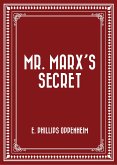In "Mr. Waddington of Wyck," May Sinclair intricately weaves a narrative that bridges the psychological depth of the modernist era with the social concerns of early 20th-century England. The story revolves around the central character, Mr. Waddington, revealing his complexities against the backdrop of a changing society. Sinclair employs a fluid, introspective literary style that captures the nuances of human emotion, identity, and the conflicts of personal versus societal expectations. Her exploration of themes such as class, morality, and the often-fraught relationship between tradition and modernity places the novel in a significant literary context, resonating with the tensions of its time. May Sinclair, a pioneering feminist writer and a contemporary of literary giants such as Virginia Woolf, was deeply influenced by her background in philosophy and psychology. Her own experiences in a rapidly evolving world, marked by her interest in the inner workings of the human mind, informed her storytelling. Sinclair's keen awareness of social issues and her advocacy for women's rights permeate her work, making her a substantial figure in the modernist movement. "Mr. Waddington of Wyck" is a compelling read for those interested in psychological novels that not only entertain but provoke thought. Sinclair's nuanced character portrayals and vivid prose invite readers to reflect on their own societal roles while providing a rich tapestry of early 20th-century life. This novel is essential for anyone keen to explore the intersections of individual consciousness and collective societal change.
Dieser Download kann aus rechtlichen Gründen nur mit Rechnungsadresse in A, B, BG, CY, CZ, D, DK, EW, FIN, F, GR, H, IRL, I, LT, L, LR, M, NL, PL, P, R, S, SLO, SK ausgeliefert werden.









